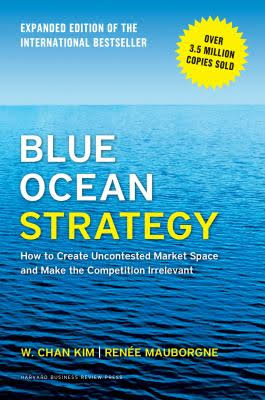Photo by Dave Delaney. All Rights Reserved.
My kids are nine and ten years old. For the last several years, I have been recording them on the morning of their birthdays. Each birthday, I use the voice recorder app on my iPhone, to ask the birthday boy or girl one simple question.
What do you want to be when you grow up?
I have been fascinated with this question since I began to pause and reflect upon my own career, throughout my adulthood. I find the answer to what we truly want to do for a living can often be found in the things we most enjoyed as children.
When my brother, Mike, was about eight, I performed magic and comedy for his friends at his birthday party. I was probably eleven years old. I was a class clown. I loved making my friends laugh, but the ultimate win was cracking up a teacher. I remember Ms. Hickey once laughing hysterically as she turned to the chalkboard to hide her laughter from the class. She couldn't reveal that I had her busting her gut.
Years later, I would study improv comedy at Second City. I even had my own improv comedy troupe when I lived in Ireland. Improv is something I've been itching to do again. In fact, I'm (finally) going out this Saturday to see an improv show in Nashville. It only took me eight years living here to finally do this.
I loved creative writing in school. I used to write short stories, poetry, and I wrote in journals religiously. As I got older, the journalling stopped. It's something I have started doing again recently. Of course, I have this blog to share my thoughts with you. I also write on the Futureforth blog, Tennessean newspaper, and in my personal email newsletter (you are subscribed, right?).
I loved drama class in school too. My earliest memory of performing on stage was doing Little Red Riding Hood in Grade 3. I had been demoted from my role of the lumberjack hero because I had goofed off one too many times in class. Instead, I was re-cast as a tree. I was more of a prop than I was an actor. My direction was to simply tilt my body horizontally as if to collapse slightly as the replacement lumberjack swung his axe into me. From there he would hear Little Red Riding Hood’s desperate yells for help and run to her rescue.
My parents sank in their seats and my teacher's face became raging red with anger.
When the lumberjack scene arrived. I stood erect with my arms spread out like a great oak tree. My parents and the audience probably noted my stylish wardrobe of a green turtleneck, dark brown corduroy pants, and trendy Buster Brown shoes. The lumberjack swung his axe into my side, but instead of following my direction, I had a better idea. I slowly fell forward with my face nearly smashing against the stage floor. I fell like a real oak tree wood, “Timber!”. The audience roared in applause and laughter as my parents sank in their seats and my teacher's face became raging red with anger.
I love making people laugh. I love being on stage in front of an audience. I know this is why I became a speaker. I always leave the audience informed, but make sure they laugh during my presentations too. There is nothing worse than a dry, boring speaker.
Recording what Ella and Sam want to be when they grow up is an exercise for their own reflection as they get older. The recordings are private. I have no intention of sharing them with the world. I just want them to realize that as kids, they already have wonderful ideas on what they will be when they grow up. I want them to stay in tune with these ideas as they grow. I don’t want the system to distract them from following their true passions. Sir Ken Robinson has an excellent book called The Element. Robinson wrote, “The Element is about discovering your self, and you can’t do this if you’re trapped in a compulsion to confirm. You can’t be yourself in a swarm.”
What did you want to be when you grew up?
I bet your favorite duties in your job stem from your childhood passions. Maybe you are lucky enough to do what you have always dreamed of doing. Or maybe you are stuck in a job that has nothing to do with the true you. Take some time to jot down what you wanted to be as a kid. Add the things you enjoyed most as a child. Now ask yourself how you can begin to weave these interests and passions into your work.


















































